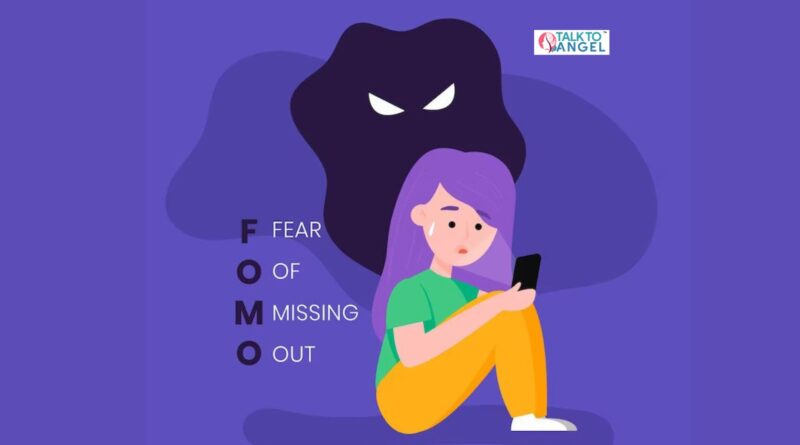Overcoming FOMO: How to Break Free from the Fear of Missing Out
Introduction to FOMO
FOMO is a relatively new term, but it’s one that has quickly gained traction in the popular lexicon. Essentially, FOMO is the fear that you’re missing out on something important that other people are experiencing. This fear can manifest in a variety of ways, from feeling like you’re not doing enough with your life to worrying that you’re not keeping up with your friends or colleagues.
Understanding the Fear of Missing Out
The fear of missing out is something that many people experience, but it’s not always easy to understand why. In some cases, FOMO is linked to a sense of inadequacy or low self-esteem. In other cases, it may be the result of social pressure or the fear of being left behind. Whatever the cause, it’s important to understand that FOMO is a very real and often distressing emotion.
Symptoms of FOMO
The symptoms of FOMO can vary from person to person, but some common signs include feeling anxious or restless, constantly checking social media or other sources for updates, and feeling like you’re not doing enough with your life. You may also find yourself comparing your life to others or feeling envious of what other people are doing.

Causes of FOMO
There are many potential causes of FOMO, but some of the most common include social media, peer pressure, and a sense of disconnection. Social media can be particularly problematic, as it can create the impression that everyone else is having a better time than you are. Peer pressure can also be a factor, as it can make you feel like you’re not doing enough if you’re not constantly busy or achieving new things. And finally, a sense of disconnection from other people can also contribute to FOMO, as it can make you feel like you’re missing out on important social events or experiences.
Why FOMO is harmful
FOMO can be harmful for a number of reasons. First and foremost, it can create a great deal of anxiety and stress, which can be detrimental to your mental health. It can also lead to feelings of inadequacy and low self-esteem, which can impact your relationships and your ability to achieve your goals. Finally, FOMO can be a major distraction, as it can cause you to focus on what other people are doing rather than on your own priorities.
How to overcome FOMO
If you’re struggling with FOMO, there are a number of things that you can do to overcome it. One of the most important is to focus on your own priorities and goals, rather than on what other people are doing. This can help you develop a sense of purpose and direction, which can be incredibly empowering. You may also find it helpful to limit your exposure to social media or other sources of FOMO, as this can help you avoid triggers that contribute to your anxiety. Finally, seeking the help of a FOMO counseling psychologist or therapist can be incredibly beneficial, as they can help you develop coping strategies and work through your feelings in a safe and supportive environment.
FOMO Counseling Psychologist
A FOMO counseling psychologist is a mental health professional who specializes in helping people overcome FOMO. These professionals typically have advanced training in psychology and counseling, and they can provide a range of services to help people manage their symptoms. This may include cognitive-behavioral therapy, which can help you identify and challenge negative thought patterns, or exposure therapy, which can help you confront your fears and develop coping strategies.
Therapies for FOMO
There are a number of different therapies that may be helpful for people struggling with FOMO. In addition to cognitive-behavioral therapy and exposure therapy, other options may include mindfulness-based therapies, which can help you develop a greater sense of self-awareness and acceptance, or psychodynamic therapy, which can help you explore the underlying causes of your FOMO.

Counselling for Fear of Missing Out
If you are struggling with FOMO and are considering counseling, TalktoAngel is an online counseling platform that offers a range of mental health services, including counseling for FOMO. Their team of licensed therapists and counselors are trained to help individuals identify and manage their symptoms of FOMO, using evidence-based interventions such as cognitive-behavioral therapy (CBT) and mindfulness-based stress reduction (MBSR). Through TalktoAngel, you can work with a counselor or therapist to develop personalized coping strategies and explore the underlying causes of your fears. With TalktoAngel, you can access high-quality mental health care from the comfort of your own home, at an affordable price. If you are struggling with FOMO, counseling through TalktoAngel may be a helpful option to consider.
Online Counseling for FOMO
TalktoAngel is an online counseling platform that provides a convenient and accessible way for individuals to access mental health support. Through TalktoAngel, individuals struggling with FOMO can connect with licensed therapists and counselors who can provide guidance and support to help them manage their anxiety and feelings of social comparison. Online counseling through TalktoAngel allows individuals to receive support from the comfort of their own home, making it a convenient option for those who may have difficulty accessing traditional therapy. Additionally, TalktoAngel offers affordable pricing options, making mental health support more accessible to a wider range of individuals. If you are struggling with FOMO, online counseling through TalktoAngel may be a helpful option to consider.
FOMO Meaning
The meaning of FOMO is relatively straightforward: it refers to the fear of missing out. However, the implications of this fear can be quite complex, and can impact many different areas of your life. Understanding the meaning of FOMO is an important first step in overcoming it, as it can help you develop a greater sense of self-awareness and self-acceptance.
Conclusion
In conclusion, FOMO is a very real and often distressing emotion that can be quite pervasive. However, there are a number of things that you can do to overcome it, including focusing on your own priorities and goals, limiting your exposure to triggers, and seeking the help of a FOMO counseling psychologist or therapist. With the right support and strategies, it is possible to break free from the fear of missing out and live a more fulfilling life.


